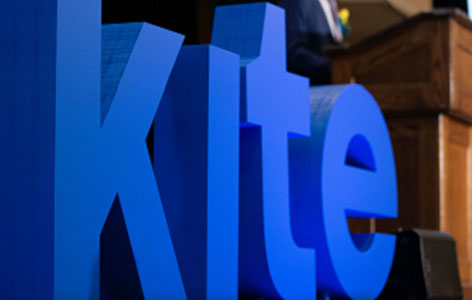
By: Tyler Saumur, ORT Times Writer
January 30, 2019 marked the first Toronto Rehabilitation Institute (TRI) Research Day led by Dr. Milos Popovic as Institute Director. Dr. Popovic wasted no time igniting the day’s activities, unveiling KITE as the new name of TRI’s research arm. The acronym, which stands for “Knowledge, Innovation, Talent, Everywhere,” is also a metaphor; as Dr. Popovic puts it, “With a kite you can’t just start building it…you have to preconceive what it is going to look like. You need something sturdy enough to catch the wind and take off.” This speaks volumes to the research process. Scientific research, by definition, is hypothesis-driven. You must systematically understand a topic in order to develop and conduct studies that will hopefully evoke change and better the lives of individuals. The rebranding is an exciting initiative and sure to attract a lot of attention.
With the day off to a strong start, it maintained momentum with talks from Dr. Brad Wouters, UHN’s Executive Vice President, Science and Research, and Dr. Kevin Smith, UHN President and Chief Executive Officer, both of which praised KITE and UHN for their vital research impact on the national and global levels. Their talks highlighted UHN, which is the top-funded research hospital in Canada, and KITE, which is ranked as one of the top-ranked rehabilitation research facilities in the world with over 300 research members including scientists, trainees, and research support staff. The morning talks concluded with the keynote talk from Dr. Milad Alizadeh-Meghrazi, Director of Research and Development at Myant Inc., who demonstrated the innovative features of new types of smart textiles. The smart textiles that he discussed can be used to make comfortable, washable clothing that provides continuous, multi-point sensing that can provide a plethora of physiological information ranging from heart rate to urine analysis. Dr. Alizadeh-Meghrazi’s talk generated a lot of discussion amongst the audience and opened their eyes to the possibilities of the application of smart clothing in health research.
The remainder of the day highlighted KITE trainees, starting with the competitive and always challenging minute madness. As usual, trainees came up with exciting ways to discuss their research in one minute. Two of the most creative presentations involved musical interludes. The first was a version of the “Fresh Prince of Bel-Air” theme, rewritten to discuss a wearable technology that can monitor spine flexion. The second was a version of “Super Mario Party” performed by the Sleep Science Team that highlighted their research progress. The day concluded with poster presentations and interactive displays that engaged attendees with hands-on research experiences. Throughout the day, trainees received honours for their accomplishments: awards were handed out for best publication and best accessibility-focused research, along with the TD Graduate Scholarship for People with Disabilities, the Joel Verwegen Award and the Geoff Fernie Impact Award. To view a complete list of awardees and to learn more about the event, please visit www.researchday.ca. Congratulations to all the award recipients and to KITE for the institute’s new initiative!
To watch a video about KITE, click here.




